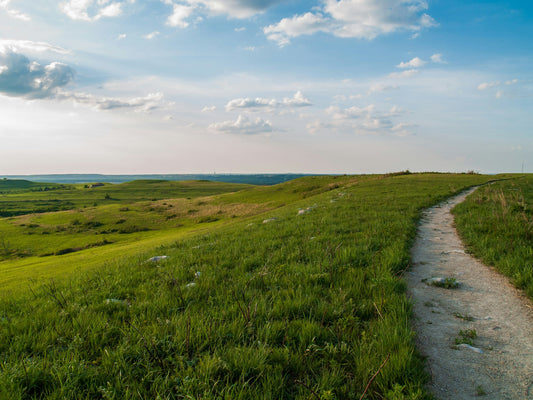The Legality of Hemp in Arkansas: A Comprehensive Guide
Hemp products have become trendy across the U.S. Still, they are not all legal everywhere around the states.
Arkansas's hemp law has gone down the lane of regulation, compliance, and restrictions, particularly that, which relates to intoxicating cannabinoid products. With so much happening around, people often ask, “Is Delta 9 legal in Arkansas?”
While litigation and continued regulatory efforts may be in store, Arkansas stands alone in its move to allow hemp products, both for industrial and consumer use, with the passing of Act 629.
In this guide, Arkansas's hemp laws are explored in detail about licensing, regulations, legal definitions, and how newly proposed legislation will affect the industry. This comprehensive overview provides readers with a greater insight into Arkansas's hemp policies, present restrictions, and hemp products' future in Arkansas.
Defining Hemp in Arkansas
Hemp and Marijuana Legal Difference
As per federal rules, Arkansas defines Hemp as any plant that includes cannabidiol, regardless of indication of tetrahydrocannabinol (THC) content of 0.3 percent or less, on a dry weight basis. The distinction between Hemp and marijuana is essential in determining whether products are legal and what regulatory rules then apply.
Any synthetic equivalents of cannabis are classified as Schedule VI controlled substances under Arkansas Code Annotated § 5-64-215, making it clear that the legal hemp marketplaces view low THC natural products, which also answer the query, “Is Delta 9 legal in Arkansas?”
AR Code § 2-15-503 - Specific Product Definitions
Industrial hemp is defined in Arkansas law along with its various allowable product uses, unlike other forms of cannabis. Production of fiber, food, fuel, and many industrial uses of Hhemp fall under the law's many applications.
In this case, hemp-derived cannabidiol (CBD) is legal as long as it contains no more than 0.3 percent delta-9 THC (verified by testing by accredited laboratories). These definitions give Arkansas its hemp industry foundation, illustrating which products are legal and safe for consumers to ingest.
Legislative History of Hemp in Arkansas
Pre-2018 Hemp Regulations
Before 2018, when the federal government legalized Hemp, Arkansas, like most states, deemed all cannabis controlled and outlawed substances. The use of hemp was generally only allowed for research with only very limited legal means for cultivation or processing of Hemp.
Due to the lack of a legal distinction between hemp and marijuana, the definition of the term hemp was mostly indirect. Since both plants were equally prohibited, they afforded no opportunity for industrial or commercial applications.
The 2018 Farm Bill and Arkansas Hemp Law
With the 2018 Farm Bill redefining hemp and allowing for states to carry out their hemp programs, Arkansas was able to create its hemp program that conformed to federal standards. This made the answer to “Is Delta 9 legal in Arkansas?” more clear.
Arkansas took the opportunity, writing laws allowing farmers to grow hemp under state oversight. It set the stage for Arkansas's modern regulatory regime, which includes licensing and having to test for THC.
Recent Legislative Developments: Act 629 and What it Means
Act 629 changed Arkansas' approach to hemp-derived products in 2023. This legislation aimed to mandate a ban on these intoxicating hemp products and directed that Arkansas Tobacco Control (ATC) enforce this ban. Bio Gen, LLC v has continued in litigation due to Act 629.
At Sanders, the definition and limitation of 'industrial hemp' are a subject of contention. This case has the potential to redo the state's hemp market and how it applies to products containing any intoxicating effect.
Hemp Regulations in Arkansas
Hemp Growers and Business Licensing Requirements
To grow, process, or sell hemp in Arkansas, you need a license from the Arkansas Department of Agriculture. After an extensive review of each application, these licenses require background checks and safety inspections to ensure that land use regulations are being met and compliance with THC testing protocols is followed.
Samples have to be sent to THC testing facilities by licensed growers to check whether their crops remain under 0.3%, the legal threshold.
Arkansas Tobacco Control (ATC) – Compliance Standards and Enforcement
Regulating hemp-derived intoxicating products was the objective of ATC under Act 629, to keep intoxicating products with the potential to induce psychoactivity out of the public’s hands.
ATC complies with the exacting standards of the ATC, involving strict labeling criteria, product quality testing by accredited labs, and age restrictions on some products.
A rigorous oversight structure where the ATC has been granted authority to issue fines, enforce recalls, and take legal action against non-compliant businesses has been granted.
Arkansas Hemp Laws Penalties For Non-Compliance
Arkansas is penalized if businesses or individuals violate the state's hemp regulations. In extreme cases, synthetic cannabinoids may lead to criminal charges, and THC levels may result in fines and suspension or loss of the license to practice medicine. Arkansas has taken this robust enforcement approach in support of safe, regulated markets for hemp derivatives.
Hemp-Derived Cannabinoid Product-Specific Limits
CBD and Non-intoxicating Cannabinoid Products
Arkansas allows CBD products containing no more than 0.3% delta-9 THC so long as they also meet labeling and testing requirements. More restrictive standards apply to ingestible products, but products intended for use topically (creams and lotions) are not so restricted.
Quality testing must be done on all CBD products, and they must be obtained from a licensed provider.
Restrictions On Delta 8 THC And Delta 10 THC
Act 629 has made Arkansas an unambiguous opponent of intoxicating cannabinoids, such as delta-8 THC, delta-10 THC, or similar substances. Because these products are classified as such, they can only be sold in licensed dispensaries if retailers are permitted to sell them.
By Act 629, the ATC is required to enforce the ban of such intoxicating hemp products and monitor for synthetic and highly concentrated cannabinoids.
Arkansas Hemp Businesses - How to Become Compliant
Labeling, THC Testing & Documentation
In Arkansas, hemp businesses need to begin developing consistent testing practices and ally with accredited laboratories to verify the THC content of their plants. Labels should feature clear and natural THC levels, a list of the ingredients, correct usage instructions, and specific manufacturer information.
Facilitating regulatory reviews and ensuring consumer safety requires good documentation, including testing certificates and sourcing records.
Endorsement And Approval Requirements
While the Arkansas requirements for endorsing the sale of intoxicating cannabinoids specifically address intoxicating cannabinoids, sellers of non-intoxicating CBD products must also follow quality testing and labeling rules.
Products must be clearly marked as non-intoxicating and must list the THC content as verified by a third-party lab. Meeting these requirements helps prevent businesses from legal problems and allows consumers to trust.
Legal Status & Ongoing litigation
Bio Gen, LLC v. Clinton Sanders and The Implications of Act 629
The case of Bio Gen, LLC v. has caused quite a bit of discussion in Arkansas' hemp industry. How to define Act 629 and its prohibitions on intoxicating hemp products is at issue in this ongoing litigation.
The decision of the court could alter the state's method to control Hemp, especially on products that may produce slight psychotropic effects. Bio Gen, LLC's case could usher in more hemp-derived products, while an Act 629 win could further limit the availability of the products.
Impact On Consumers And Businesses
This litigation has wide implications for the roles of consumers and businesses. Consumers would have less access to popular Hemp-derived cannabinoids, and companies would have a smaller market for some products if the court upheld the restrictions.
However, by ruling in favor of Bio Gen, LLC, the market, while more open, should follow with more regulatory adjustments.
Arkansas Hemp Future Outlook
Legislative Developments and Adjustments to Act 629 Potentials
So, as Act 629 faces a lawsuit, Arkansas's hemp industry can expect further regulatory developments regarding delta 9 THC legality .
Bio Gen, LLC v. was the present outcome, but if Sanders is successful, they could spur lawmakers to reexamine hemp legislation to refine definitions and clarify product restrictions.
Furthermore, if future bills aim to restrict products with psychoactive effects of higher age or even more restrictive labeling, such requirements, or even testing requirements, will be included.
Hemp-derived products demand, especially those with non-intoxicating cannabinoids, will see growth. This will further influence later legislative adjustments as this consumer's interest can result in lawmakers calling to allow a broader range of products.
With ongoing research into cannabinoids and the public awareness that follows Arkansas' hemp industry may read a growing market for therapeutic and well-being products, spurring additional development and brand-new ideas while answering, is Delta 9 legal in Arkansas.
Hemp market in Arkansas: Challenges and Opportunities
The Arkansas hemp market has some promise but also challenges. Consequently, there exists legal ambiguity, competition with marijuana dispensaries, and a shift in consumer expectations at large means the regulatory environment is still unclear.
The industry will be forced to mature, and businesses have to be adaptable as regulations evolve and companies remain compliant to stay in the market.
Conclusion
Arkansas' complex and everchanging hemp regulations show a cautious approach to the industry towards intoxicating cannabinoids. The restrictions imposed by Act 629 have been especially dramatic, drawing on the state's desire to assure the safety of consumers and limited access to a potential class of psychoactive products.
But as the hemp market develops and consumers dabble, Arkansas's policies might keep changing. Whether you're a consumer, a hemp business, or the state of Arkansas itself, the future of hemp and the answer to the your question, “Is Delta 9 legal in Arkansas?” is tied to the outcome of ongoing litigation and potential legislative adjustments.
Stakeholders can get into the promising Arkansas hemp business if they know how to keep up with the changing laws that affect the industry and understand the rules and requirements for compliance.









